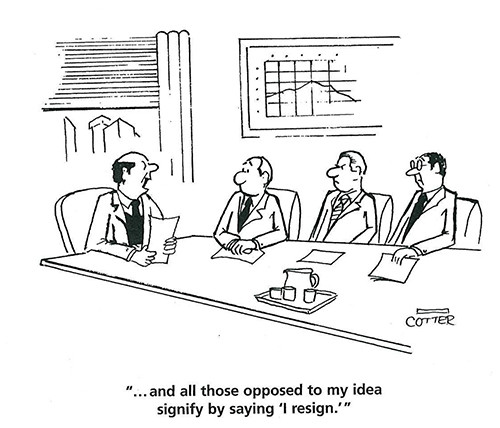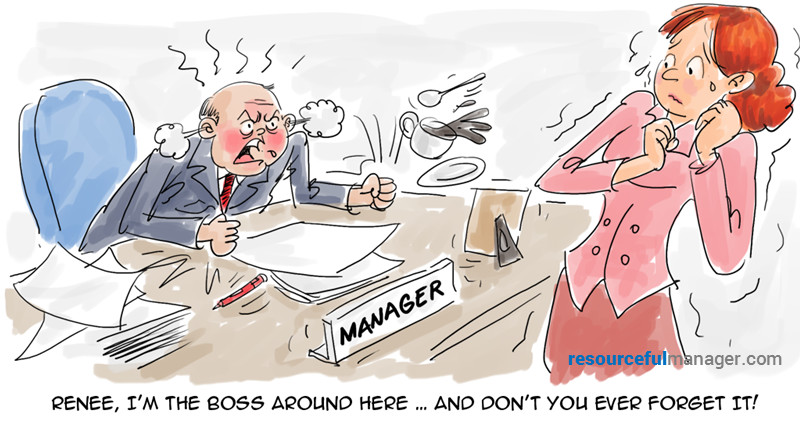Over the years I’ve watched far too many good people leave their team or stop doing their best work because of a bad manager. In fact, research shows that the number one reason an employee quits is their manager. (https://www.entrepreneur.com/article/249903) This doesn’t include the loss or productivity for teams under a bad manager. As my colleague David Lee says, “Don’t leave the best part of you in the car before coming into work.”
There are plenty of books out there that do a great job describing how to build high performing teams, how to be a great manager, and the qualities of a winning culture that you can read. Instead, I’m going to focus on the symptoms of teams that are at risk of quitting and what is causing the erosion of team and organizational performance. From my observations, it comes down to two statements:
1. High performers cannot survive under a bad manager.
I’m sure you’re thinking, “Wow, thank you Captain Obvious.” But even with our best employees there is a limit to how much people can accomplish in a bad environment We can all agree that no one likes a bad manager. But how is it that bad managers even exist?
2. A bad manager is the result of failed management up the chain.
If a bad manager exists, then his/her direct manager has failed their responsibility, and this management failure runs to the top of the house. Think about how Toyota approaches problems. Their goal is not to fix a defect; their goal is to fix the process that allows defects to occur. A defective manager means the overall management process is broken.
So how can you recognize a dying team? Here are a few warning signs;
The One-Man Team Manager
Whether this manager is a know-it-all, idea killer, or micro-manager this manager is not open to changes or ideas that come from the team. One-man mangers will point to rules and procedures to stop or redirect the team, and he believes that accountability is solely about assigning blame. Under this rule of terror, only box checkers and drones are likely to survive.
Authority by Position
These managers feel that your position on the org chart validates your value and ability. “I’m better than everyone below me.” “Mrs. SVP won’t like that, so don’t embarrass us by asking for that.” You’ll notice these managers will name/position drop when trying to prioritize importance of activities or the way they want something done. The worst part is that they are unwilling to receive feedback or guidance from anyone not at least one position above them.
You Don’t Really Exist
I wanted to say that a lack of respect for others was one of the root causes of bad management, but it goes far beyond that. Bad managers are unwilling to consider any perspective other than their own, and can be so consistently dismissive that they don’t even notice they are doing it. Have you been in a meeting where you observe a manager responding to a speaker with an answer totally unrelated to the speaker’s comments?
Who is ultimately responsible for an under-performing employee? While I fully believe in individual accountability, it is ultimately the manager‘s responsibility to observe and repair under-performance. If an employee does not self-correct unacceptable behavior, then the manager must address it. The problem becomes toxic when bad managers can’t, or won’t, take action. So when teams start eroding, why is upper management so often unwilling to accept there are problems with their management teams and work to address it? I’ve observed three themes:
1. Bad Managers Hire and Create Bad Managers
We feel most comfortable with people who are similar to us, and managers may unknowingly go as far as hiring people with similar bad traits. When you see bad behaviors from your manager, look to see if they are mimicking those behaviors from their manager. Team hierarchies that adopt a culture of blame, avoidance, or hyper-accountability are rarely successful.. And often, bad management behavior magnifies as it spreads down the teams.
Regardless of someone’s position, a manager must remove under-performers from the team, no matter what their role. As Jim Collins stated in “Good to Great” (paraphrased), you do an employee a great disservice by keeping them in a position where they can’t succeed. Whether a manager won’t take action because they think it might reflect poorly on their hiring decision or fear of confrontation, too many managers do not have crucial conversations to correct bad behavior or help the employees move on, whether that employees is a manager or a member of a team.
We cannot solve our problems with the same thinking we used when we created them. — Albert Einstein
Execution vs. Leadership
I’ve met some amazing individual contributors or team leads who mastered execution, but that didn’t translate to being a strong manager or leader. In many cases, I believe the traits that made them the most successful executing actively inhibit team building.
Think about the project manager who can schedule, coordinate, and grind a project to success when others failed. The approach that worked during a crisis is often the behavior they turn to as their management philosophy. This is the same as the domain SME who understands every nuance of the subject, but can’t stay out of the weeds. Effective managers must not only delegate, but understand how to empower their team to appropriately delegate and collaborate.
3. Focusing on the Wrong Priorities
Unfortunately, I believe that bad managers and bad management teams simply care about the wrong things. They focus their attention on budget, strategy, prioritization, and blame shifting. Conflict at their management level is interpreted as an issue with their team’s performance, leading to reactionary blame. The priority for a manager must be in building their team to adapt and overcome any challenges by clearing obstacles the team may face. Ideally, a manager should be the bridge between their team and other teams to ensure alignment with the same goals.(see 5 Dysfunctions of a Team)
Conclusion
At some point, we’ve all had to deal with a bad manager. If they are simply unprepared, there is hope they will learn or get the support they need to become a strong leader. If bad management isn’t corrected or addressed, employees are caught in the organizational failure of the entire management chain. Failure of upper managers to address problems with their directs undermines faith in the organization leading to either poor performance by individuals or erosion of a team.
Unfortunately, the only solution I can recommend if you find yourself under a bad manager is to relocate to the most functional leadership chain you can find. Since bad management is enabled from the top down, at some point you may need to move to a better organization. No matter how well you can accomplish your goals in spite of bad management, you will eventually be worn down by an unhealthy organization. Find an organization with leaders who appreciate you.
You deserve it.










